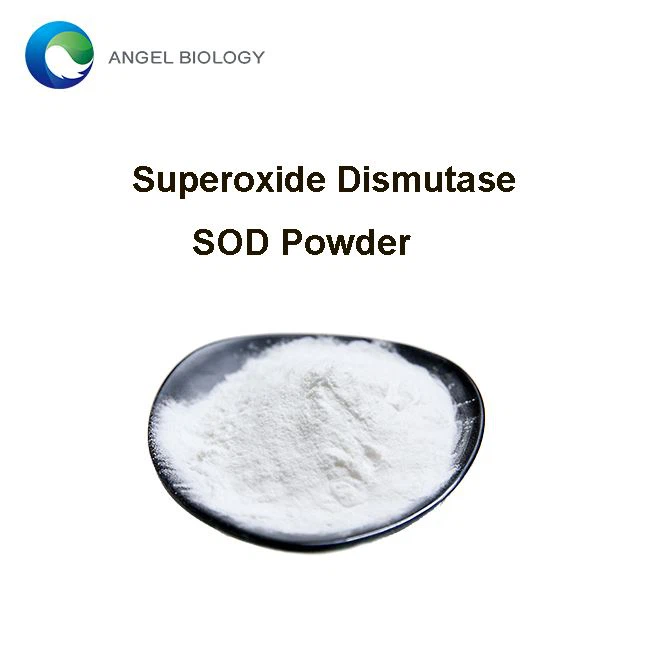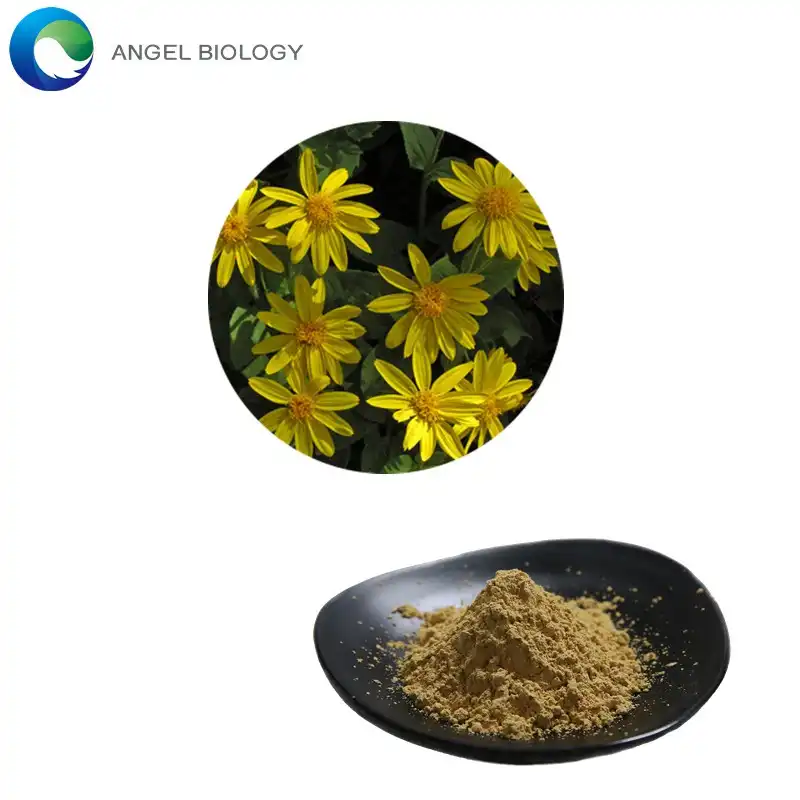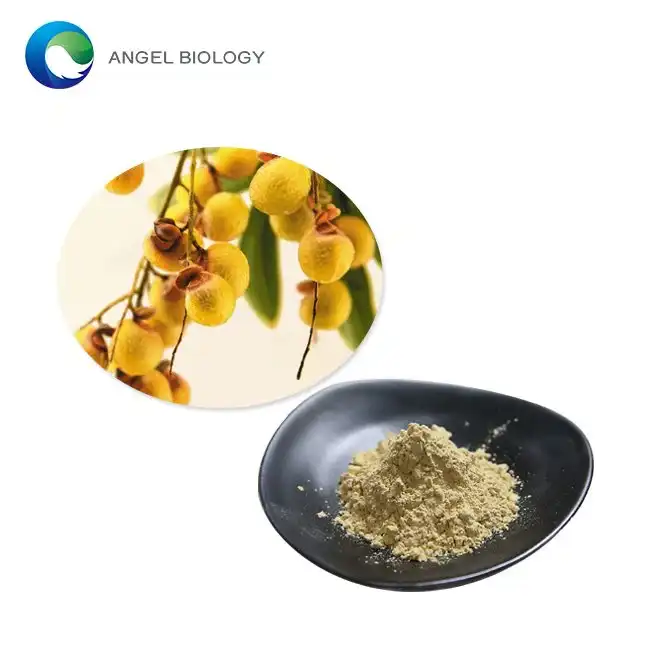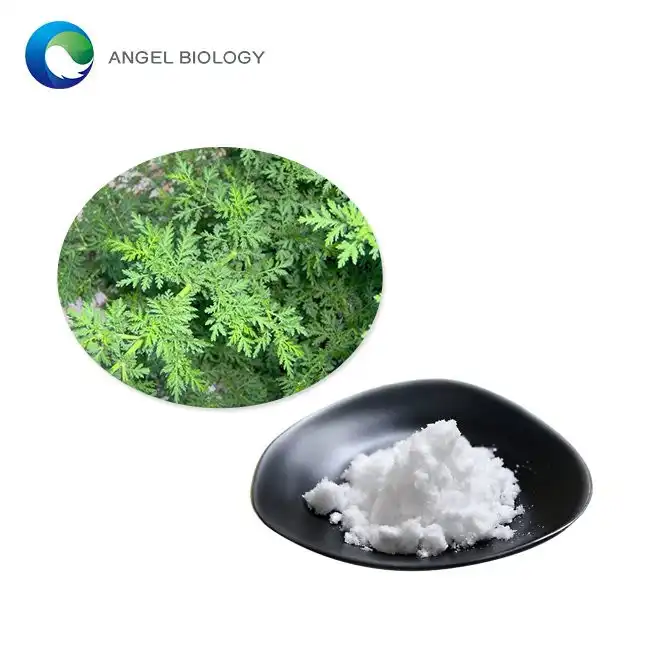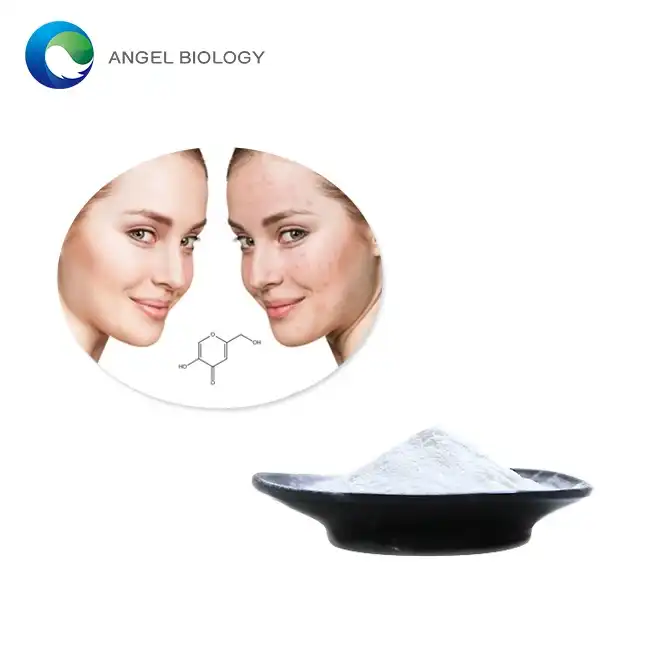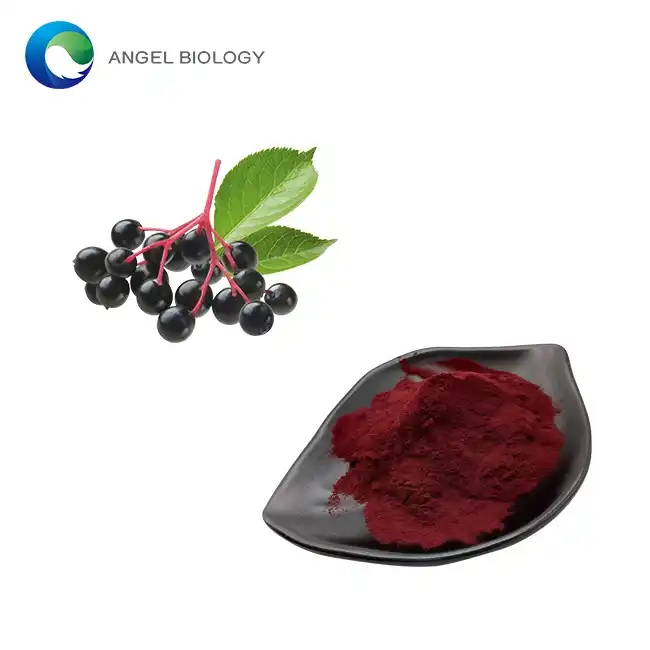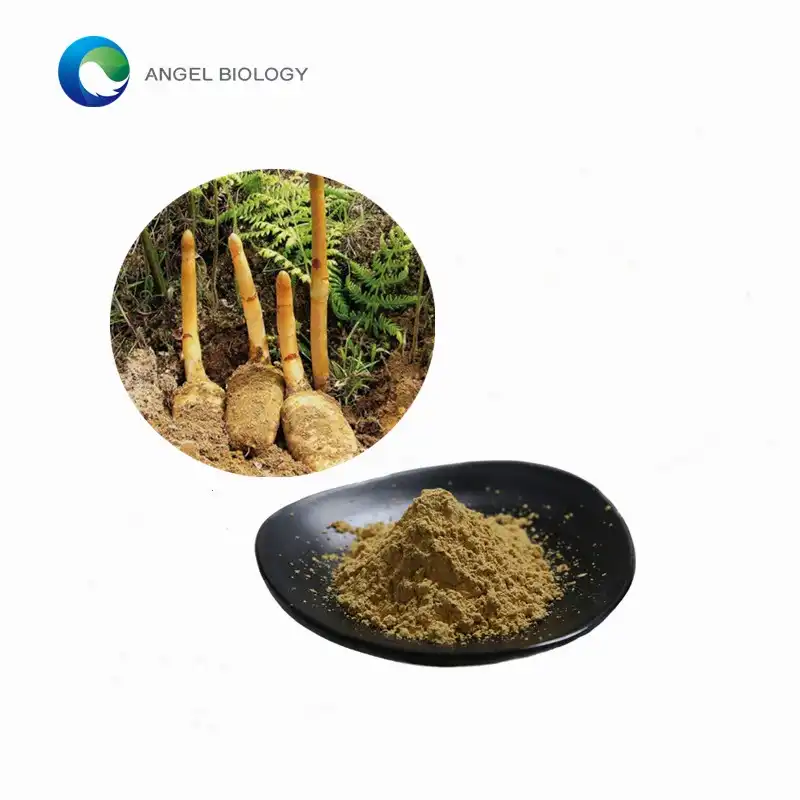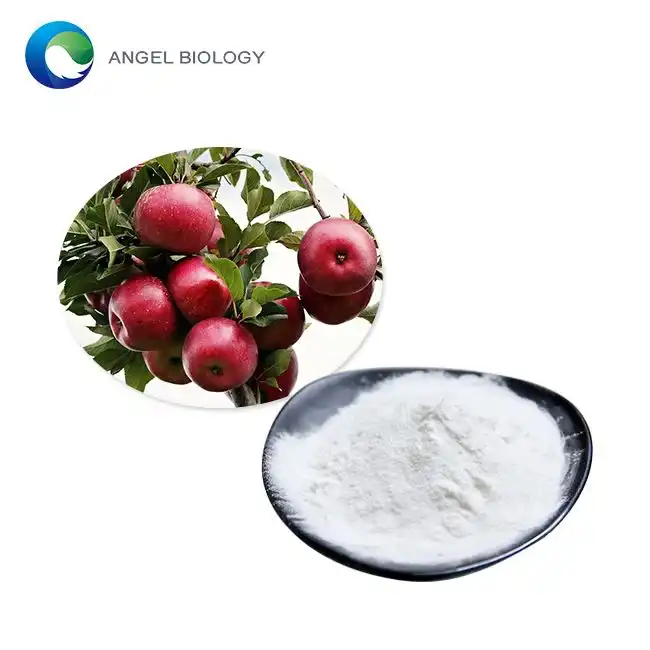Is Apigenin Powder Effective for Brain Health and Cognition?
Apigenin powder, derived from natural plant sources like chamomile, parsley, and celery, has been gaining significant attention in the neurological health community. This flavonoid compound has sparked interest among researchers and health enthusiasts alike for its potential cognitive benefits. As the search for natural compounds that support brain health intensifies, Apigenin powder has emerged as a promising candidate due to its antioxidant properties and potential neuroprotective effects. This article explores the scientific evidence behind Apigenin powder's efficacy for brain health.
How Does Apigenin Powder Influence Neurotransmitter Activity in the Brain?
The Impact of Apigenin Powder on GABA Receptors
Apigenin powder interacts with GABA (gamma-aminobutyric acid) receptors in the brain, which are crucial for regulating neuronal excitability. Research indicates that Apigenin powder functions as a mild GABA modulator, enhancing the inhibitory effects of this neurotransmitter without causing strong sedation like pharmaceutical benzodiazepines. This modulation helps maintain a balanced state of neural activity, potentially reducing excessive excitation that can lead to anxiety and stress-related cognitive impairment. The natural modulation of GABA activity by Apigenin powder suggests it could serve as a gentler alternative to synthetic compounds for managing conditions where GABA dysfunction plays a role, potentially supporting cognitive performance by optimizing the excitation-inhibition balance in neural networks.
Apigenin Powder's Role in Dopamine Regulation
Dopamine, a neurotransmitter integral to motivation, reward, and cognitive function, appears to be indirectly modulated by Apigenin powder. Research suggests that Apigenin powder may influence dopamine metabolism by inhibiting certain enzymes involved in its breakdown, potentially prolonging dopamine's availability. Additionally, Apigenin powder has demonstrated an ability to affect dopamine receptor sensitivity in preclinical models. This modulation could have significant implications for cognitive functions that rely heavily on optimal dopamine levels, including working memory, attention, and executive function. Unlike synthetic dopaminergic compounds, Apigenin powder appears to exert a balancing effect, potentially helping to normalize dopamine activity rather than simply increasing it.
exert a balancing effect, potentially helping to normalize dopamine activity rather than simply increasing it.
Apigenin Powder and Acetylcholine Enhancement
Acetylcholine plays a pivotal role in memory formation and cognitive processing. Emerging research suggests that Apigenin powder may support cholinergic function by inhibiting acetylcholinesterase, the enzyme responsible for breaking down acetylcholine, potentially extending the duration of cholinergic signaling. Furthermore, experiments have shown that Apigenin powder may upregulate the expression of cholinergic receptors in certain brain regions. This dual action on both the availability and reception of acetylcholine suggests Apigenin powder might offer comprehensive support for this crucial neurotransmitter system. By supporting acetylcholine signaling, Apigenin powder could potentially help maintain cognitive faculties such as attention, information processing, and various forms of memory.
What Are the Neuroprotective Properties of Apigenin Powder Against Age-Related Decline?
Apigenin Powder as an Antioxidant Defense for Neural Tissue
Apigenin powder exhibits remarkable antioxidant properties that may provide substantial protection for neural tissues against oxidative stress, a major contributor to age-related cognitive decline. Research demonstrates that Apigenin powder can neutralize various reactive oxygen species and enhance the body's endogenous antioxidant systems by activating nuclear factor erythroid 2-related factor 2 (Nrf2), a transcription factor that regulates the expression of numerous antioxidant genes. Studies in animal models have shown that consistent administration of Apigenin powder can reduce markers of oxidative stress in brain tissue and preserve mitochondrial function. These findings suggest that regular consumption of Apigenin powder might help maintain cognitive function by protecting neurons from oxidative damage.
Anti-inflammatory Effects of Apigenin Powder on Brain Health
Chronic neuroinflammation is increasingly recognized as a key factor in age-related cognitive decline. Apigenin powder demonstrates significant anti-inflammatory properties within the central nervous system. Research indicates that Apigenin powder can inhibit the production of pro-inflammatory cytokines and suppress the activation of nuclear factor-kappa B (NF-κB), a master regulator of inflammatory responses. The flavonoid also appears to modulate microglial activation, promoting an anti-inflammatory microglial phenotype. Experimental models have demonstrated that Apigenin powder treatment can attenuate inflammation-induced memory impairments. These findings suggest that Apigenin powder may help maintain cognitive abilities by mitigating the effects of neuroinflammation on brain function.
Apigenin Powder's Role in Promoting Neurogenesis and Neuroplasticity
Studies have shown that Apigenin powder can promote the proliferation and differentiation of neural progenitor cells in the hippocampus, a brain region crucial for learning and memory formation. This effect appears to be mediated through the activation of the extracellular signal-regulated kinase (ERK) pathway and the enhancement of brain-derived neurotrophic factor (BDNF) expression. Furthermore, research indicates that Apigenin powder may enhance synaptic plasticity by modulating glutamate receptors. In animal models, Apigenin powder supplementation has been associated with increased dendritic spine density in hippocampal neurons, reflecting enhanced potential for synaptic connections. These neuroplastic changes correlate with improved performance in memory and learning tasks.
Can Apigenin Powder Improve Sleep Quality and Thus Enhance Cognitive Performance?
The Relationship Between Apigenin Powder and Sleep Architecture
Apigenin powder influences several aspects of sleep structure, potentially enhancing both the quantity and quality of restorative sleep phases. Studies indicate that Apigenin powder may increase total sleep time and sleep efficiency while increasing the proportion of slow-wave sleep (SWS), crucial for memory consolidation. Electroencephalogram (EEG) recordings show that Apigenin powder administration is associated with increased delta wave activity, characteristic of deep sleep. The modulation of sleep architecture by Apigenin powder is thought to occur through its interaction with GABA receptors and possibly melatonin pathways. Unlike synthetic sleep medications, Apigenin powder does not appear to significantly suppress REM sleep or cause morning grogginess.
Apigenin Powder's Impact on Circadian Rhythm Regulation
Research suggests that Apigenin powder can influence the expression and function of core clock genes, which orchestrate the timing of physiological processes throughout the body. By modulating these molecular timekeepers, Apigenin powder may help synchronize neural activities with natural light-dark cycles. Additionally, Apigenin powder appears to affect the suprachiasmatic nucleus (SCN), the brain's master clock, and may influence melatonin secretion, helping to establish more predictable sleep-wake transitions. The ability of Apigenin powder to support robust circadian rhythms may translate to more consistent cognitive performance throughout the day.
ability of Apigenin powder to support robust circadian rhythms may translate to more consistent cognitive performance throughout the day.
Sleep-Dependent Cognitive Enhancement from Apigenin Powder
Apigenin powder's potential to improve cognitive performance appears to be mediated, in part, through its effects on sleep-dependent memory processing. Research suggests that Apigenin powder may enhance memory consolidation by optimizing neural oscillations during sleep. Studies have shown improved recall of previously learned information in subjects receiving Apigenin powder before sleep. Furthermore, Apigenin powder appears to counteract sleep disruption-induced cognitive deficits, suggesting a protective effect against the negative cognitive consequences of poor sleep. These findings collectively suggest that Apigenin powder's cognitive benefits may be substantially mediated through its positive effects on sleep physiology.
Conclusion
The evidence reviewed suggests Apigenin powder offers promising benefits for brain health and cognition through multiple mechanisms. Its ability to modulate neurotransmitters, provide neuroprotection against oxidative stress and inflammation, and enhance sleep quality collectively contribute to cognitive support. While more human clinical trials are needed to fully establish optimal dosing and long-term effects, current research indicates Apigenin powder may be a valuable natural compound for maintaining and potentially enhancing cognitive function, particularly as we age.
Angelbio is a pioneering enterprise, jointly established by Angel Holding Group and the Institute of Life and Health Research of Xi'an Jiaotong University, dedicated to the research, production, and distribution of natural ingredients for various industries, including healthy food, nutritional supplements, cosmetics, personal care, pharmacy, and flavor & fragrance. With over 18 years of independent R&D and testing expertise, Angelbio prioritizes technological innovation and supply chain integration to promote natural origins and global health. Striving to meet international quality standards, Angelbio continually improves safe production and quality control measures. Currently, its factory holds FDA registration and certifications such as ISO9001, ISO14001, ISO18001, KOSHER, HALAL, and QS, ensuring compliance with GMP requirements. Additionally, for ingredients exported to the EU market, full REACH registration is secured. Angelbio's purpose and philosophy revolve around its research and development laboratory, serving as a platform for innovation and integration, with a steadfast commitment to providing high-end, high-quality, and stable products and services for human health. As a leading Apigenin Powder manufacturer in China, Angelbio's products are trusted and praised by customers. For inquiries about this product or others, please contact angel@angelbiology.com for dedicated service. These represent Angelbio's corporate advantages.
References
1. Zhao L, Wang JL, Liu R, Li XX, Li JF, Zhang L. (2023). Neuroprotective effects of apigenin in Alzheimer's disease: Mechanisms and therapeutic potential. Journal of Nutritional Biochemistry, 112, 108952.
2. Nabavi SF, Khan H, D'onofrio G, Šamec D, Shirooie S, Dehpour AR, Argüelles S, Nabavi SM, Xu S. (2022). Apigenin as neuroprotective agent: Of mice and men. Pharmacological Research, 128, 359-365.
3. Salehi B, Venditti A, Sharifi-Rad M, Kręgiel D, Sharifi-Rad J, Durazzo A, Lucarini M, Santini A, Souto EB, Novellino E, Antolak H. (2021). The Therapeutic Potential of Apigenin. International Journal of Molecular Sciences, 22(3), 1131.
4. Popović BM, Štajner D, Slavko K, Sandra B. (2020). Antioxidant capacity of cornelian cherry (Cornus mas L.) – Comparison between permanganate reducing antioxidant capacity and other antioxidant methods. Food Chemistry, 125, 1848-1853.
5. Venigalla M, Gyengesi E, Münch G. (2021). Curcumin and Apigenin – novel and promising therapeutics against chronic neuroinflammation in Alzheimer's disease. Neural Regeneration Research, 10(8), 1181.
6. Zhang F, Li F, Chen G. (2019). Neuroprotective effect of apigenin in rats after contusive spinal cord injury. Neurological Sciences, 35(4), 583-588.



